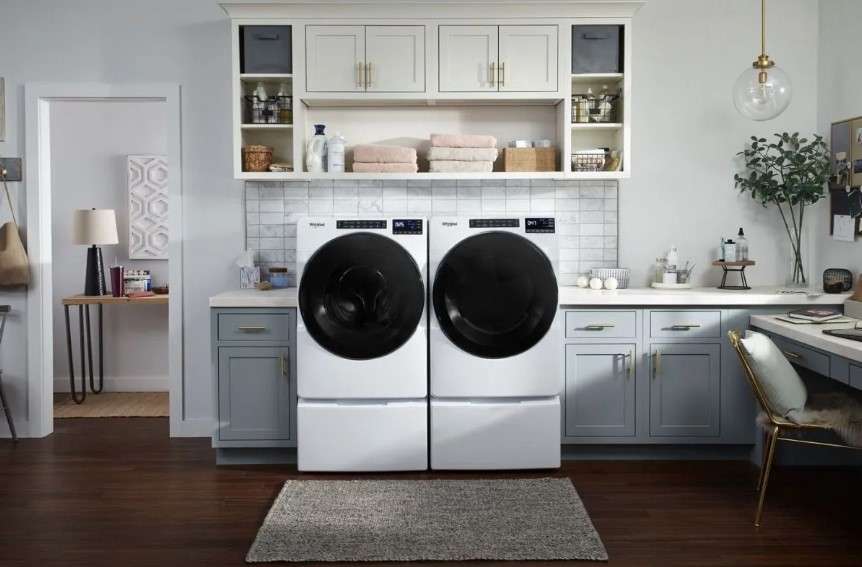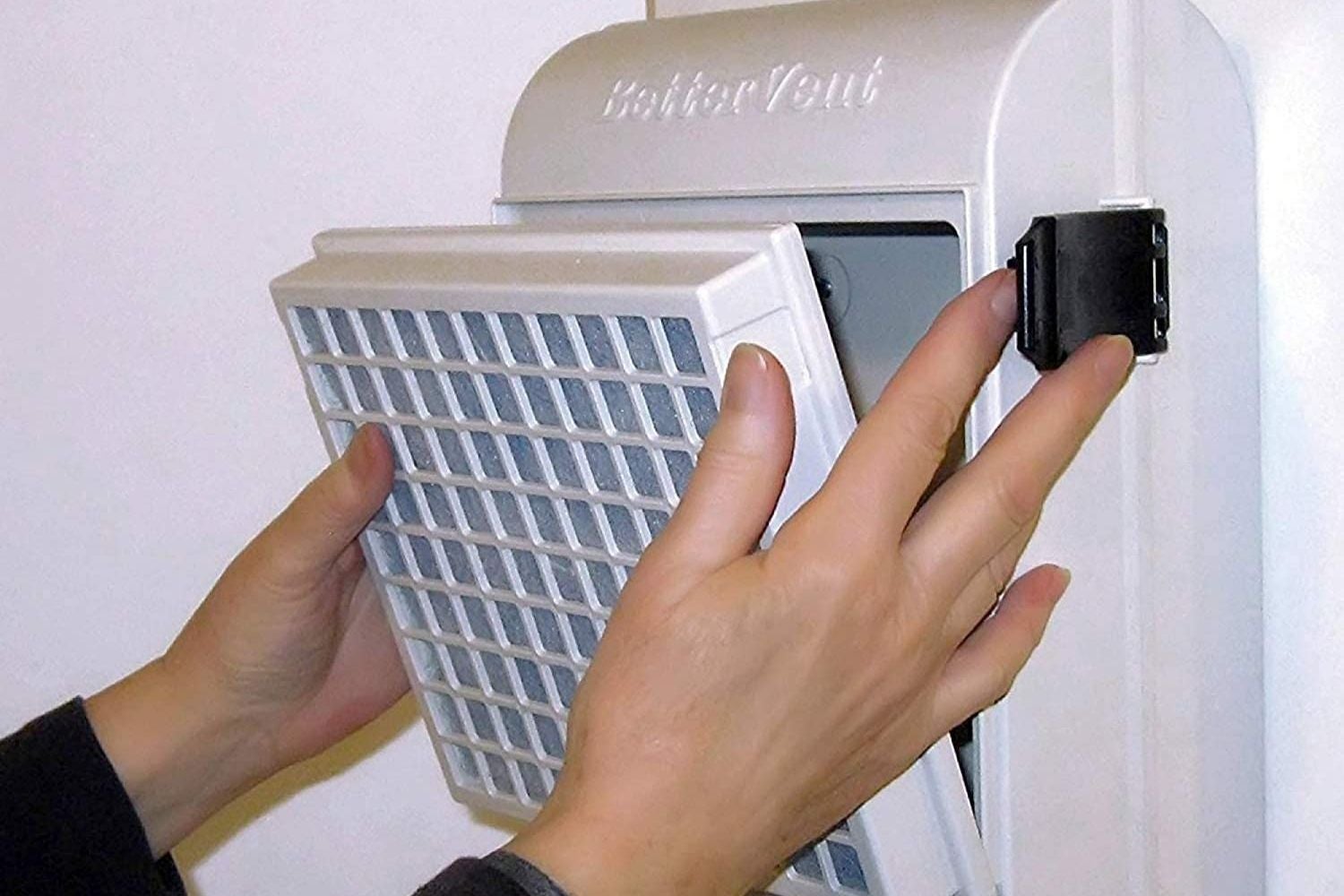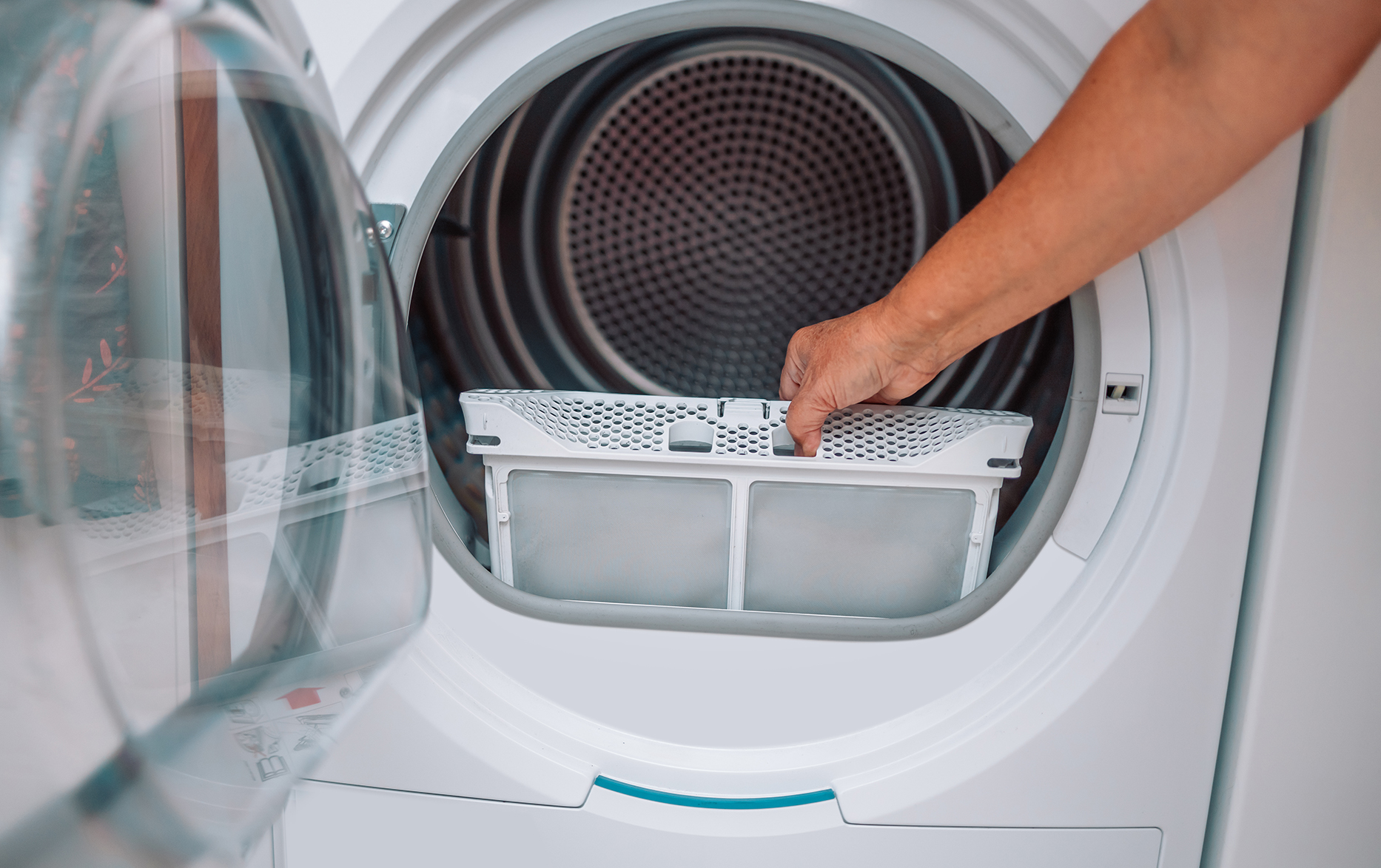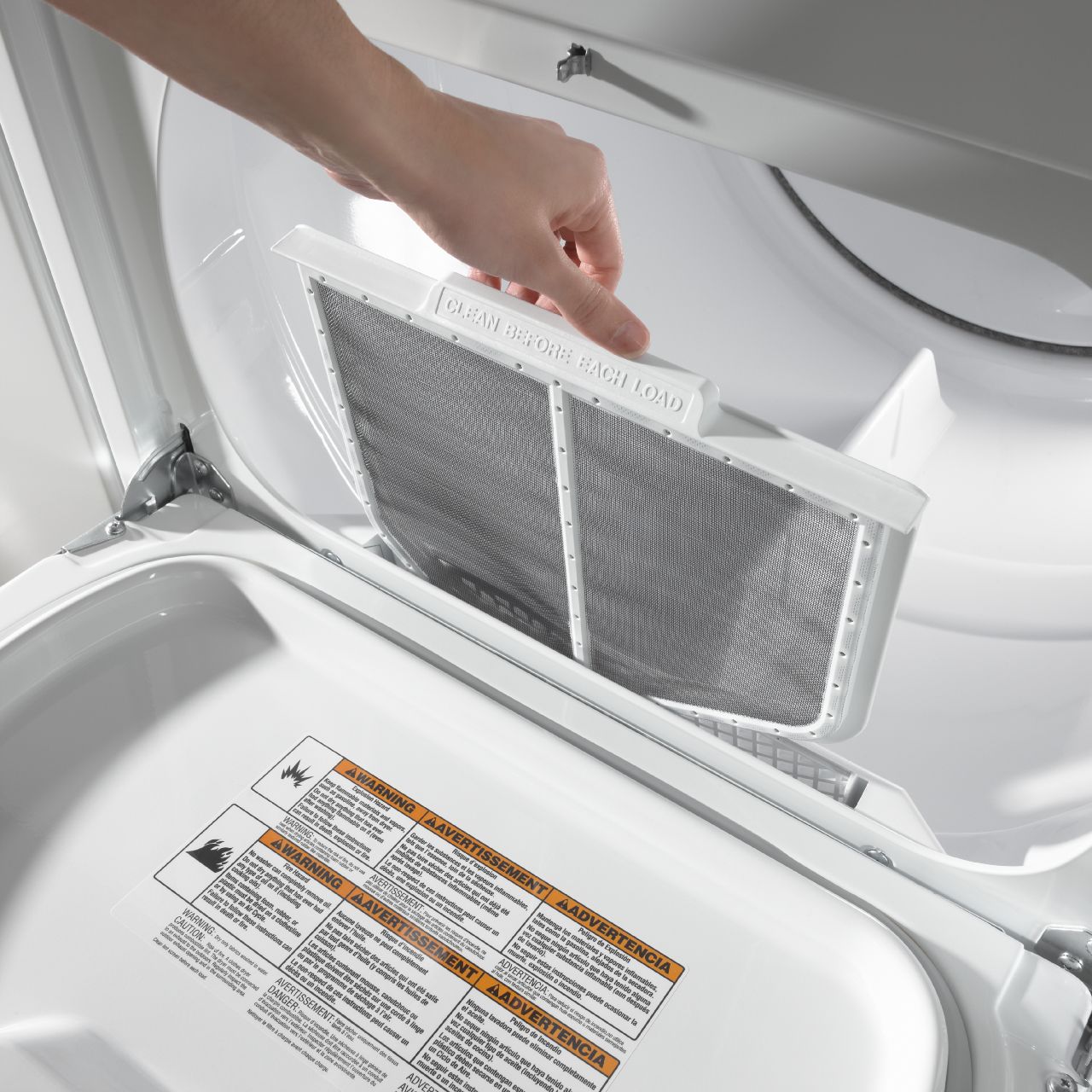
How to Clean Dryer Lint Trap & Why It's Important Don's Appliances
First, check the filter in your dryer. It may be full of lint, which can cause your dryer to work inefficiently and may pose a fire hazard. If the filter is full, remove it and clean it with a nylon brush. Step 2: Look for kinks in the vent line. Next, check the vent line that runs from your dryer to the wall.

High quality goods A daily low price store ClimaTek Dryer Lint Filter
The wet lint that accumulates in your dryer's lint trap is the result of moisture from evaporating during the drying process. As your clothes tumble around inside the dryer, their moisture is converted into steam. This steam then exits through the dryer vent, carrying lint along with it. The lint trap catches the lint as it passes and is left.

How I remove lint from a hairbrush Hair brush, Remove lint, Lint
One possible reason for the lint trap being wet is that there is a problem with the dryer's exhaust system. If the exhaust system is not working properly, it could cause the lint to become moist. This could be due to a clog in the exhaust pipe or a problem with the dryer's fan. Another possibility is that the lint trap is not being emptied.

Resources
Yes! Occasionally we find that a metal 4-inch vent or duct inside the wall was not installed correctly, resulting in lint and moisture escaping the vent and adhering to walls. Warm, moist air trapped in walls creates concerns about mold. For gas dryers, there is the additional concern regarding carbon monoxide in the air stream that is not.

The Best Dryer Vent Options of 2023 Top Picks by Bob Vila
Dryer location. Dryers location in relationship to the outside discharge vent. Length of vent and type of venting material. Plastic flex or solid metal. Number of elbows. Distance up wards, if any. And several other factors. All of which can and do effect the dryers performance and can cause lint buildup, extend dry times, etc. If it is.

Holikme 2 Pack Dryer Vent Cleaner Kit Dryer Lint Brush Vent Trap
Scrub the lint trap using a scrub brush, warm water, and dish soap. If there's stubborn residue on the lint trap, fill a bucket or sink with warm water and a few drops of dish soap. Soak the lint trap for five to 30 minutes (depending on the buildup) and use the scrub brush again to remove any excess residue and lint.

Simple Green US Household Laundry Dryer Filter
Because the hot and wet air is unable to vent adequately, it gets trapped in the dryer, and your laundry may remain damp at the end of the cycle. Dryer overheating: As steam isn't venting properly, your dryer is likely to get hotter than usual. The dryer's exterior, especially the sides and near the bottom, could feel warm to the touch.

Can Dryer Lint be a fire hazard if the vent is leaking in my attic
Step 1 - Clean out the vent trap. The easiest task to reduce condensation in your dryer is to clean out the vent trap. When the trap gets filled up with lint, your dryer won't be able to dispel all of the hot air in the dryer during a cycle and condensation might develop. It's a good idea to empty the vent after each drying cycle.

What is Dryer Lint? Everything to Know DIY Life Tech Shorts
Here are some quick and easy steps to clean dryer vents. Step 1 - Unplug the Dryer - always do this when servicing an appliance. Step 2 - Use an appliance brush to sweep/spin/catch lint from the dryer vent and duct. Step 3 - Vacuum any loose lint and debris inside the vent and outside the dryer. Step 4 - Clean the vent that extends to.

Buy Dryer Vent Cleaner Kit, Dryer Lint Vacuum Attachment Universal Lint
Another possibility is that the dryer is not properly vented, which is causing the lint trap to fill with water. In this case, you will need to have the dryer venting system checked and repaired. Finally, if the lint trap is wet but the dryer is not in use, it could be that the lint trap is clogged and needs to be cleaned.

Clipart Removing Lint From Dryer Tray
When you find the lint screen, gently pull it to remove it from the dryer. 2. Wipe clean. Simply run your hand across the accumulated lint, and it will stick to itself! Keep using the lint in your hand to grab more until the screen is clear. Throw the lint in the trash.
/8-Surprising-Uses-for-Dryer-Lint-Hero-196857af7bff490d8e18875d6ef540ac.jpg)
Multiple Uses for Dryer Lint
To clean inside the dryer, unplug it and turn off the gas, then open either the top or the front. The procedure is the same for gas and electric dryers. For dryers with a top lint filter and a solid front panel, remove the lint filter and take out the two screws on the side of the lint filter opening. Pull the top forward.

How to Remove Lint from Clothes Without a Lint Roller
The three most common signs of an obstructed dryer vent are: Longer Drying Times: Restricted airflow prevents efficient drying.; Excessive Heat: Excessive heat buildup can occur, leading to hot air inside the dryer or in the surrounding area. Lint Accumulation: A visible buildup of lint around the dryer vent opening, on the lint trap, or on the outside vent hood is a clear sign of an.

Why Does Lint Form In The Tumble Dryer? Domex Ltd
As mentioned above, the main reason water is in your dryer duct is poor ventilation. Let us go over in detail what that means below. 1. Your Duct is Long & Curvy. Having a long duct is not the issue, but if your dryer vents have multiple angles, they will likely have water buildup in some areas.

Dryer Vent Cleaning Cost Nj slideshare
Here are a few things you can do to prevent lint from coming out of your dryer vent: 1. Clean the lint trap regularly: After each laundry load, take out the lint trap, empty it into the trash, and wash it with warm, soapy water. Let it air dry completely before putting it back in the dryer. 2.

Why is There More Lint Showing Up in the Lint Trap A to Z Appliance
Lint collects in the dryer due to the shedding of fabric fibers from clothes and other garments during the washing and drying process. As the clothes tumble in the dryer, the warm air inside picks up lint from the garments. This air then passes through the lint trap's mesh filter as it exits the machine, trapping the lint.